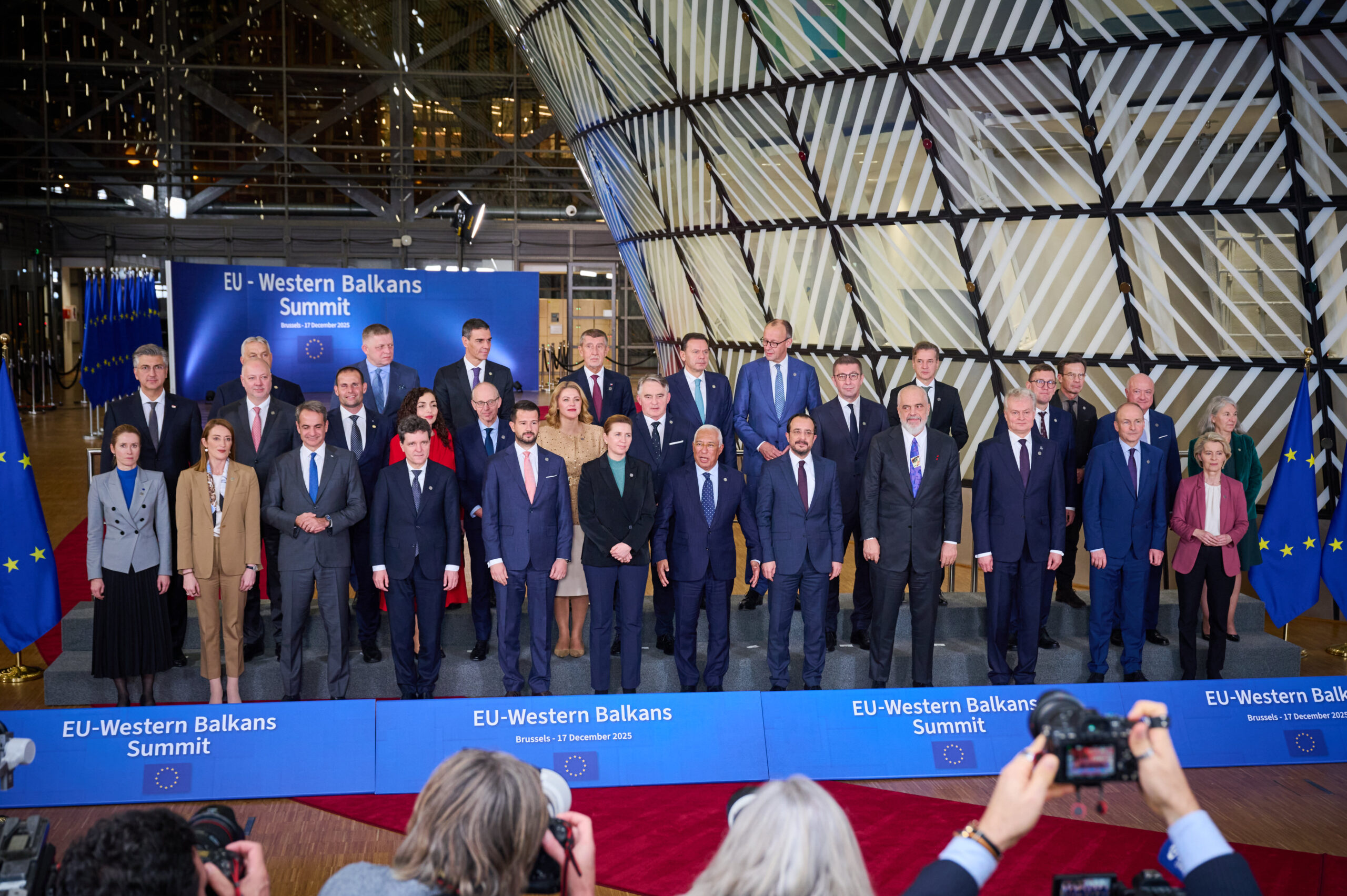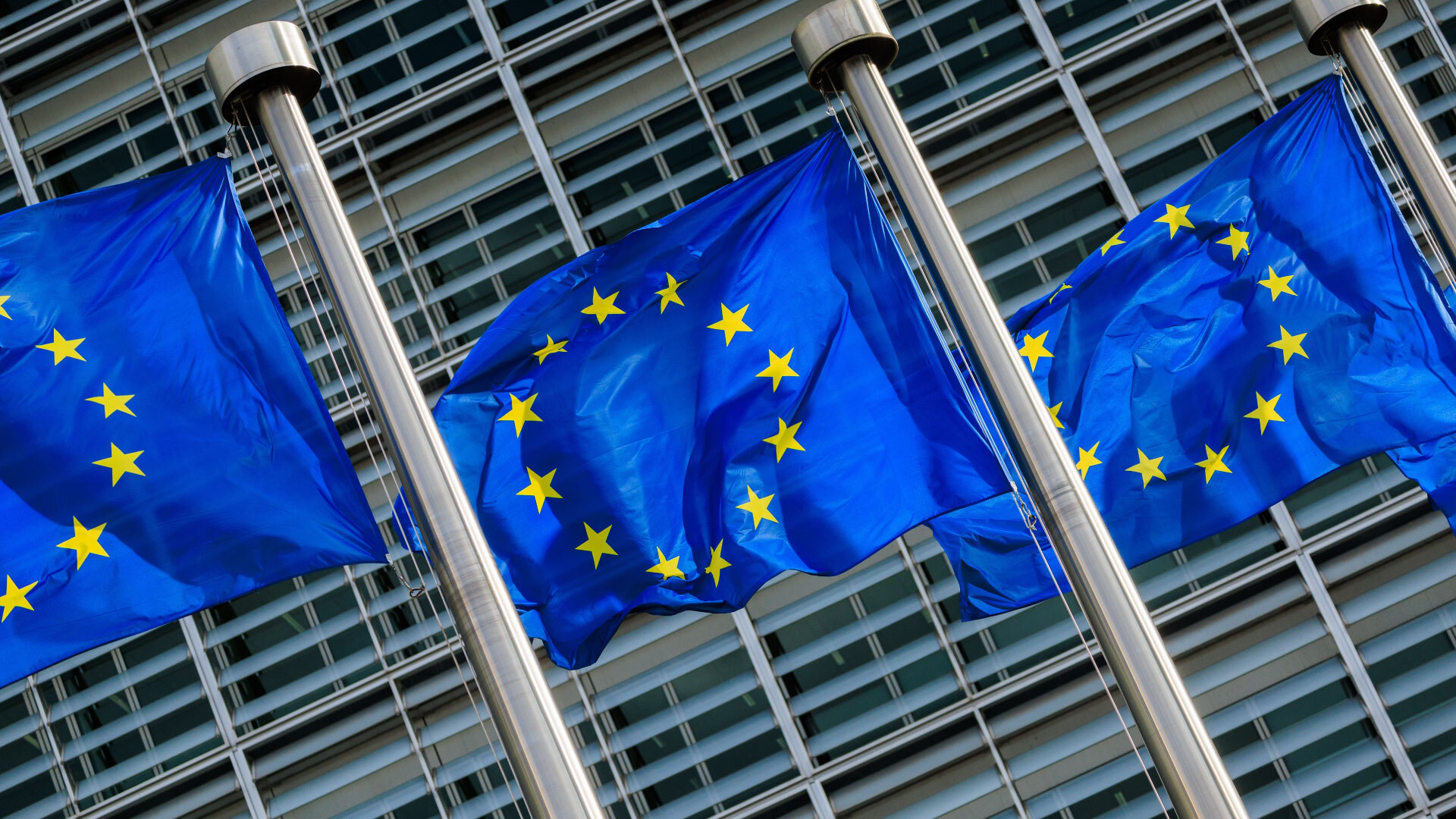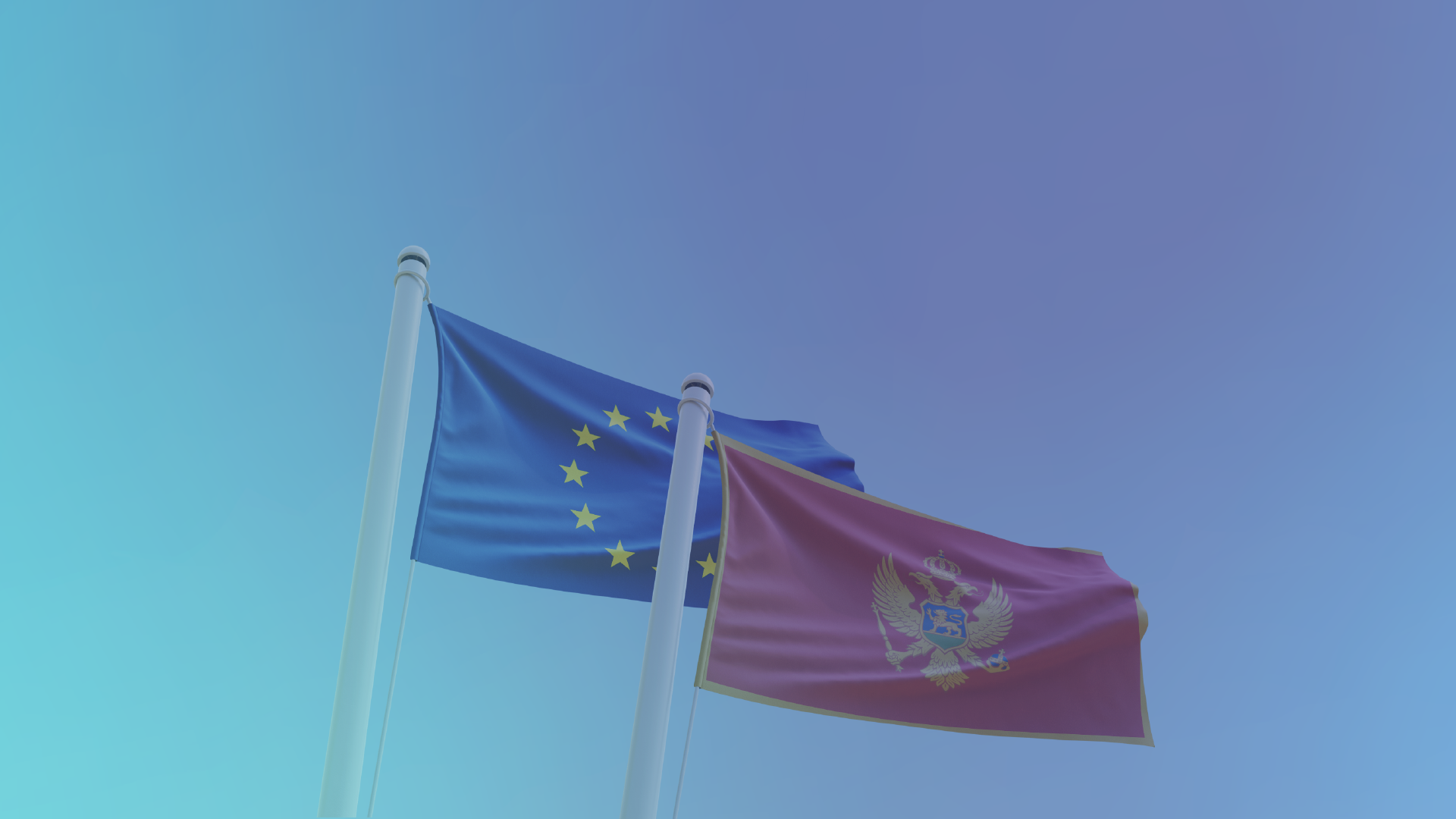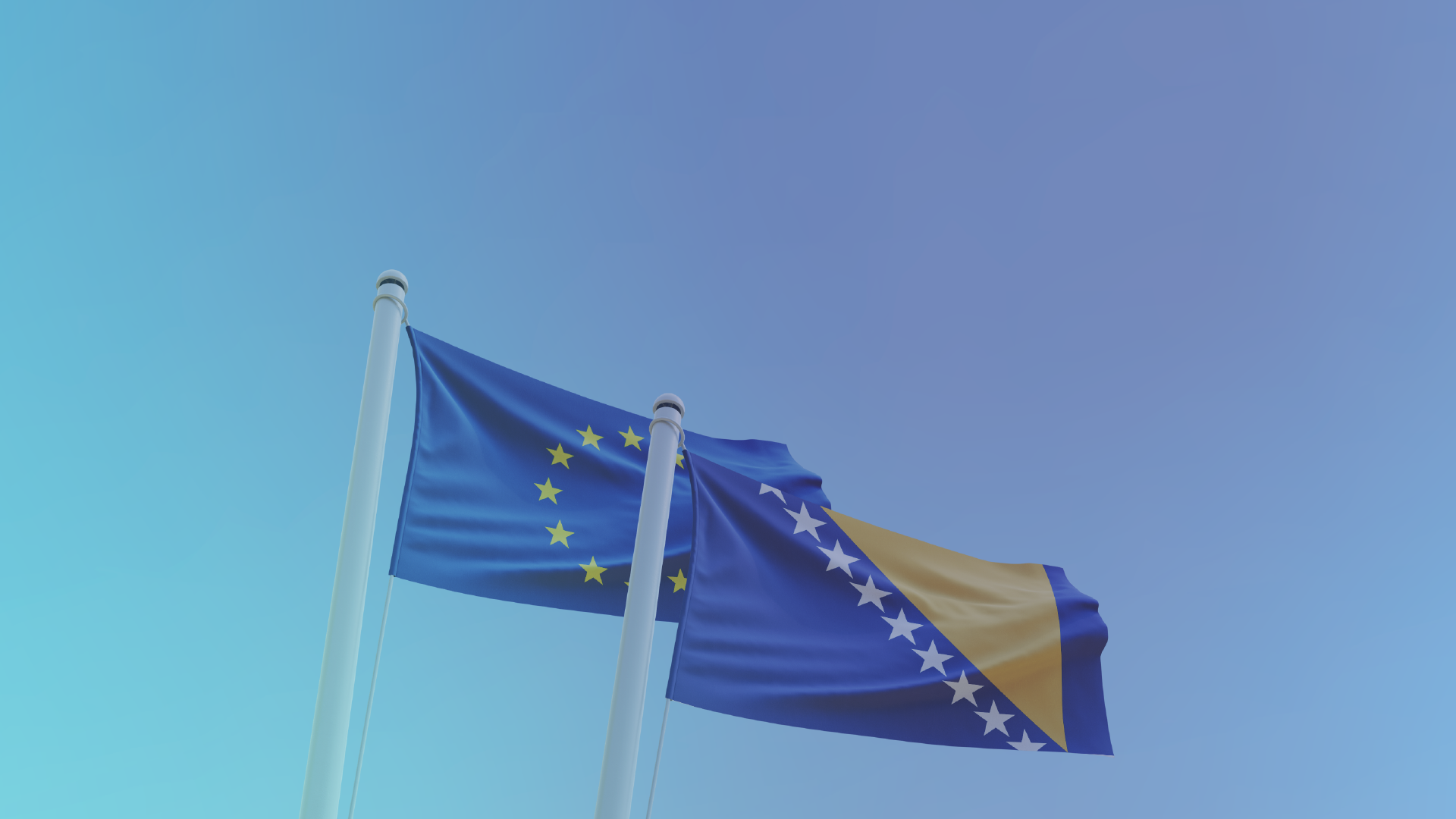Deepening private sector engagement: EU-Western Balkans Business Platform in Brussels
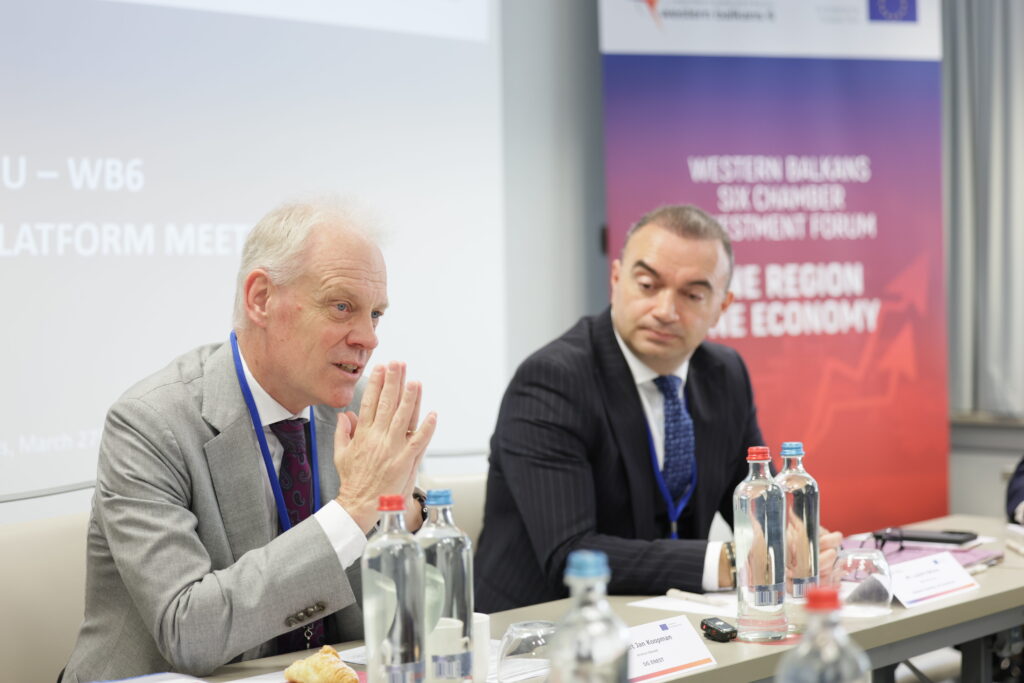
Deepening private sector engagement: EU-Western Balkans Business Platform in Brussels
On 27 March, the Western Balkans Six Chamber Investment Forum (WB6 CIF) in cooperation with the European Commission (EC) organised the 4th meeting of the EU-WB6 Business Platform in Brussels.
The event gathered representatives of companies that are members of the Western Balkans 6 Business Council, the chambers of commerce of the region, Directorate-General for Enlargement and Eastern Neighbourhood (ENEST) and experts from EC services, as well as Central European Free Trade agreement (CEFTA) and the Energy Community Secretariat.
The meeting focused on increased engagement for investment and trade with the Western Balkans (WBs) region, and achieving integration in the common regional market and closer integration with the EU single market, via the Growth Plan for the WBs (here).
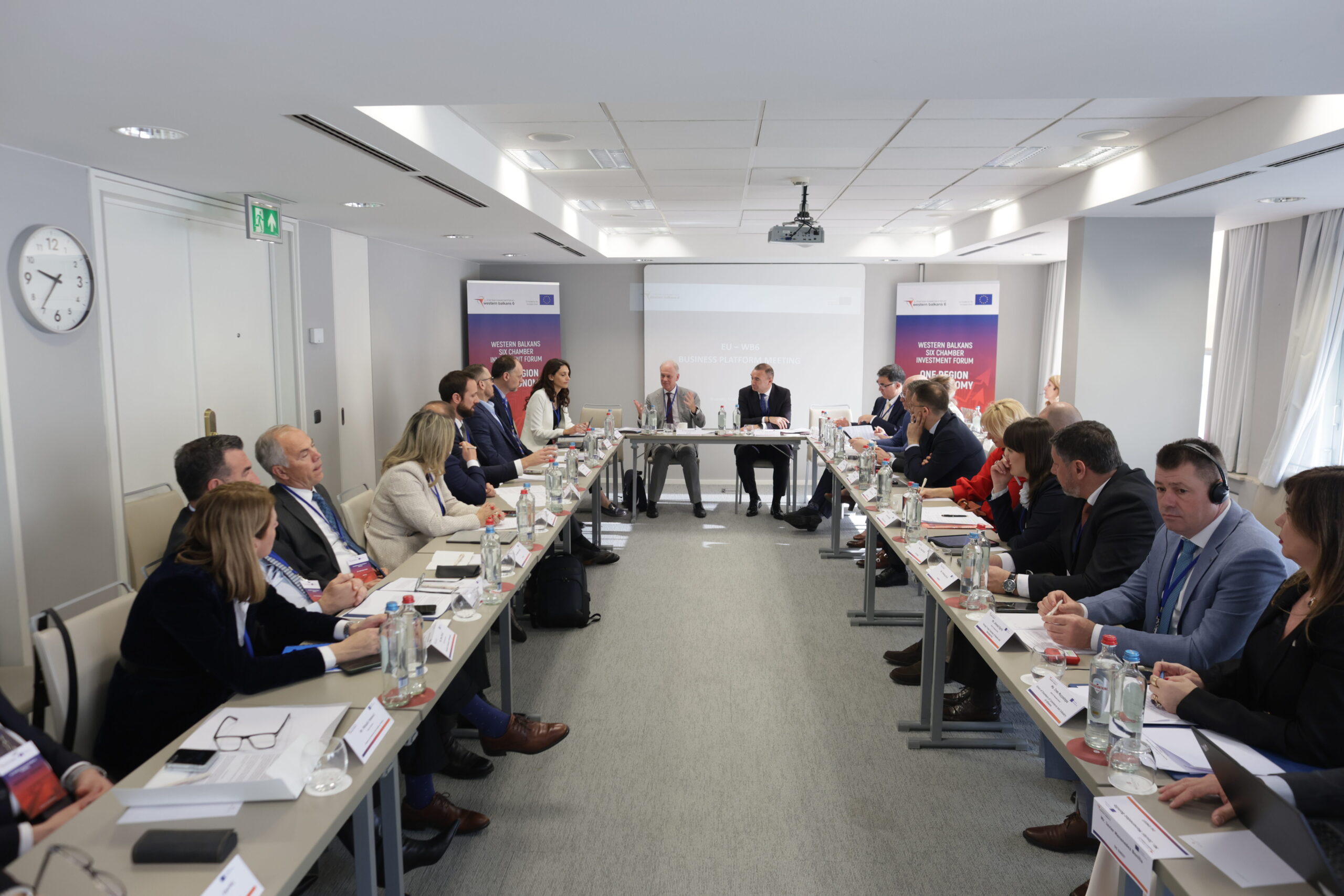
Business stories from the Western Balkans
Director General Gert Jan Koopman engaged with CEOs from companies active in the WBs. He underlined that strengthening economic ties between the EU and the WBs is essential for enhancing the socio-economic development of the region and further integration into the EU single market. An interactive discussion took place when CEOs presented the potential of future investments of their companies and described the varied challenges experienced doing business in the region and trying to expand to the EU market.
Shaping the future for regional growth
An open discussion led by DG ENEST Director Valentina Superti alongside chairman of the WB6 CIF Managing Board Mr Lulzim Rafuna, highlighted the significant challenges and opportunities for growth in the region in 3 main sectors: 1) trade in goods and services, 2) access to finance and 3) green and digital transition. Participants shared their experiences and perspectives on the current state of trade in the region.
Key challenges raised by companies included: the need for simplification, standardisation and defragmentation of the approach to customs procedures, improved infrastructure, and reduction of waiting time at border crossings. Labour shortages—driven by workforce migration—are pushing up costs, while many businesses, especially SMEs, struggle to access finance or understand available financial tools. Others highlighted the funding gap between the EU and the Western Balkans, and the lack of knowledge on new EU rules like the Carbon Border Adjustment Mechanism (CBAM). The high cost of going green and digital also remains a major concern.
Solutions posed included fostering public-private dialogue to ensure the private sector is heard and their needs are addressed in policy-making; pre-notification of certificates at border crossings; common standards and harmonising regulations to facilitate trade and reduce barriers; supporting technological advancements and access to finance to help businesses become more competitive and innovative; investing in education and raising awareness on the importance of sustainability. Predictability is essential for the investment market.
CEFTA progress and EU support
CEFTA recalled progress to date, including on authorised economic operators, roadmaps to tackle waiting times at borders, and veterinary and phytosanitary certification, while referring to the complex nature of mutual recognition programmes and the impact having different levels of acquis alignment in the six economies. DG ENEST informed that along with the success in having candidate countries join the Single Euro Payments Areas (SEPA), other achievements included implementation of measures WiFi4WB (see here) and Digital innovation hubs (see here). Work is also proceeding on implementing the Green Lanes action plans, while the European Commission is actively engaged in developing the legal base to progress on some areas of the Growth Plan e.g. the two-way exchange of customs data and e-commerce.
The event was a valuable opportunity for the European Commission to hear directly from the private sector, gathering insights and practical proposals how to move forward. In her closing remarks, Director Superti recalled the ongoing high level EU-Western Balkans leaders’ meetings that support national authorities make the necessary reforms of the Growth Plan, aimed at unlocking the full potential of the common regional market and the gradual integration in the EU single market.
If you want to learn more about the EU’s support for the private sector in the Western Balkans, see here the upcoming Western Balkans Investment Framework business forum, 9 April in Belgrade.
This event was organised by DG ENEST.B1, managing the EU project Western Balkans Six Chamber Investment Forum and DG ENEST.A3 to develop the dialogue with the Western Balkans’ CEOs.
